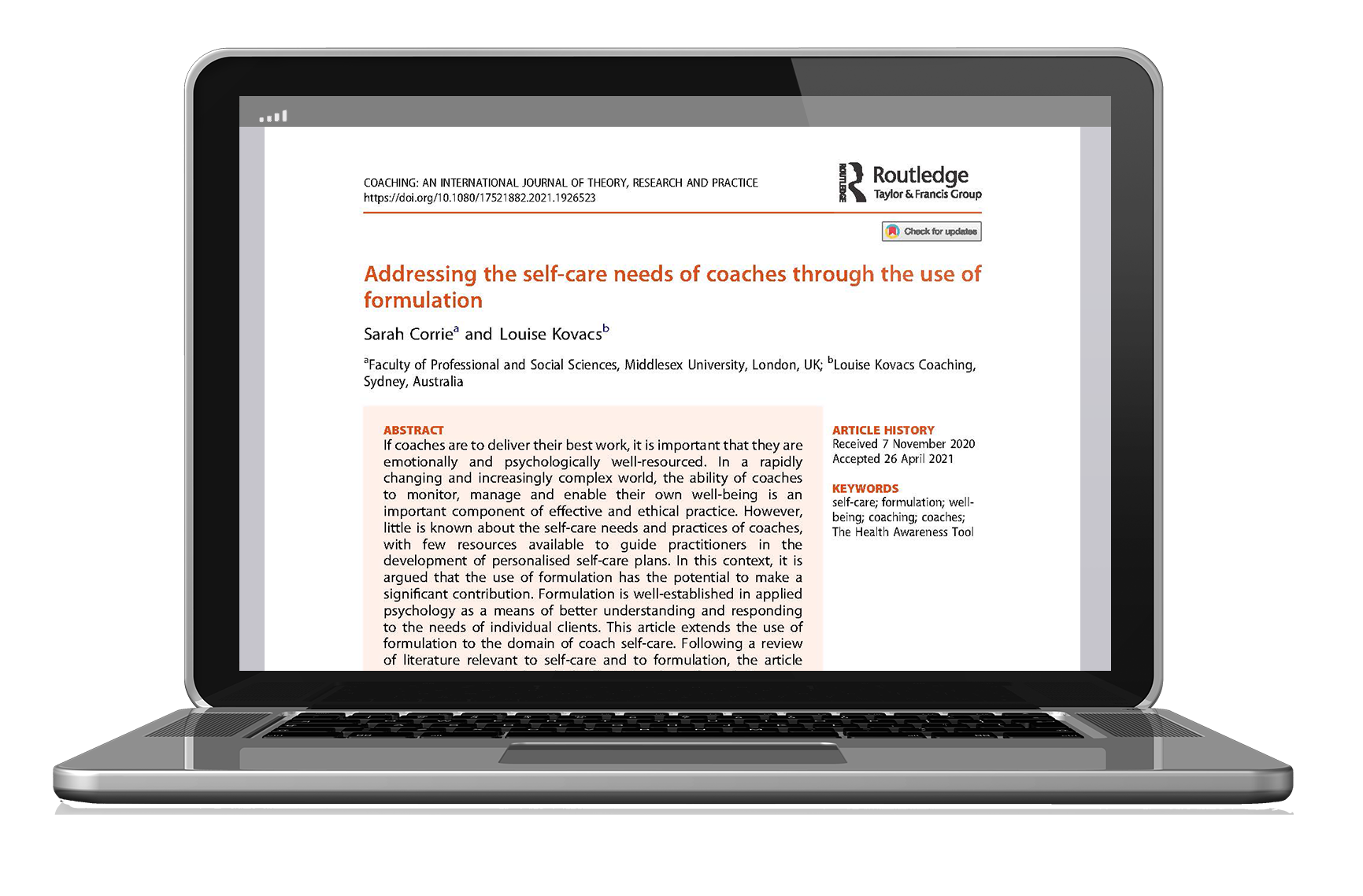Behavioral Couples Therapy for Brain Injury: Single Case Methodology with Bi-Phasic Design. Brain Injury. doi: 10.1080/02699052.2022.2145367
Does coaching need the concept of antifragility? The Coaching Psychologist, 17(2), 7-17
Addressing the self-care needs of coaches through the use of formulation. Coaching: An International Journal of Theory, Research & Practice. doi:10.1080/17521882.2021.1926523
Formulation as a foundation for navigating complexity in executive coaching. Consulting Psychology Journal: Practice and Research, 73(3), 271-288. doi.org/10.1037/cpb0000202
An exploration of reported personal benefits experienced by graduates of a Health and Wellness Coach Training Programme. Coaching: An International Journal of Theory, Research & Practice. doi: 10.1080/17521882.2021.189
Promoting well-being through the emerging specialism of health and wellness coaching. The Coaching Psychologist, 16(2), 35-45
Enhancing mental health and emotional well-being: The impact of practice-based research. Introduction to this special issue. Work Based Learning e-Journal, Vol. 9, No. 2. A
Behavioural couple therapy: measuring therapist competence. The Cognitive Behaviour Therapist, 13, e29, 1-14. doi:10.1017/S1754470X20000276
The functions of formulation in coaching psychology. The Coaching Psychologist 15(1), 66-75
Searching for shades of grey: modifying polarised thinking with continuum methods. The Coaching Psychologist, 14(2), 90-97
Undertaking a professional doctorate: a personal account of navigating the evolving post-graduate landscape. The Quarterly, 107, 30-38
Couple-based intervention for depression: An effectiveness study in the National Health Service in England. Family Process, 57 (2), 275-292. doi: 10.1111/famp.12332
Executive coaching in an era of complexity. Study 1. Does executive coaching work and if so how? A realist evaluation. International Coaching Psychology Review, 12(2), 74-89
Executive coaching in an era of complexity. Study 2. Applying formulation to coaching: A description of the PAIR framework. International Coaching Psychology Review, 12(2), 90-100
Building reflective capability to enhance coaching practice. The Coaching Psychologist, 13(1), 4-12
Supporting the supervisor: Organising professional development to enhance practice. The Cognitive Behaviour Therapist (2016), vol. 9, e23, 1-17. doi:10.1017/S1754470X1500046X
What can realist evaluation tell us about how coaching interventions work? The Coaching Psychologist, 12(2), 59-66

